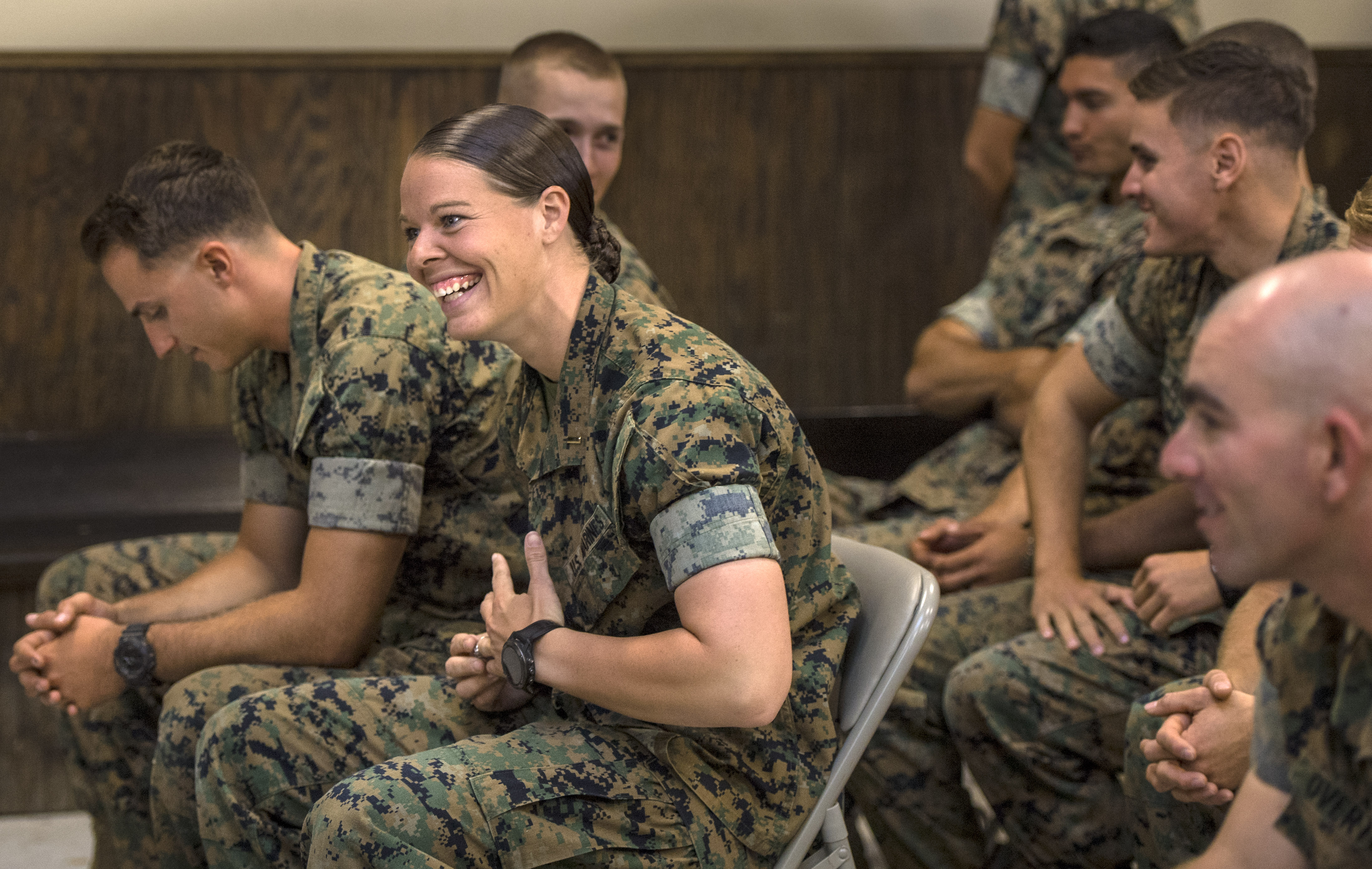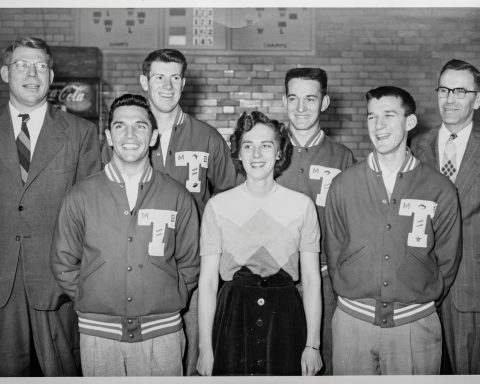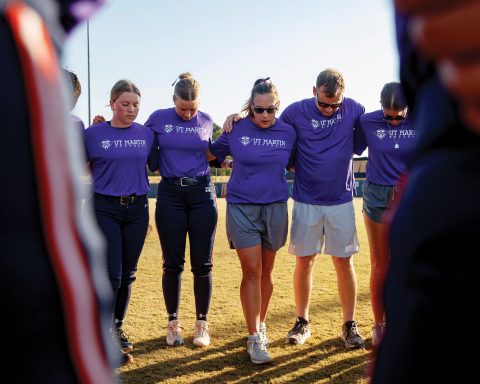Don Green closes four decades of service
Story by Erin Chesnut | Photos by Nathan Morgan
Don Green (’81) has done a little bit of everything when it comes to law enforcement, but it wasn’t entirely intentional. After approaching the South Fulton Police Department for a job while still a student at UT Martin, he unknowingly started down a career path that would last the next four decades.
“I told (the South Fulton department) I wanted a position as a dispatcher, just so I could see what law enforcement might be (like). I wasn’t sure if it was the right career for me. … But the chief there said, ‘I’m really not looking for a dispatcher. We’re shorthanded, and we have high turnover. I’m really looking for a police officer,” said Green.
So, at 20 years old, Green was sworn in by a local judge and given his equipment that same day.
“(The chief) asked me if I’d ever shot a handgun before, and I hadn’t. So he said, ‘Here’s a box of bullets. Go back out to your farm and shoot all but 18 rounds. You’ve got to keep six rounds to go in the gun and 12 rounds to go in the bullet loops on your belt. Come in at six o’clock (in the evening), and you’ll ride with a sergeant until he gets off at 11. Then you can ride with a nightshift guy until two in the morning. You’ll do that for a while,’” Green recalled. “At that time, you didn’t have to go to any kind of training academy until you had been on the job for two years.”
Green spent two and a half years with the South Fulton department before transferring to work in Knoxville around the time of the 1982 World’s Fair. He has since gained experience in almost every available area of law enforcement.

“The Knoxville Police Department at one time had a jail, a detention facility, that could hold 125 prisoners. I was the night-shift supervisor there for 10 months. I was an accident reconstructionist. I was on the SWAT team. I was on the hazardous materials team. I helped create (Knoxville’s) first bicycle unit,” he said. “I supervised our public housing policing program. I’ve worked in the criminal investigations division. I’ve worked in vice. The only things I didn’t do in the police department were motorcycles, explosive ordinance detail and K9, but I’ve supervised all those units. I had a very varied career. … It has really helped me with having a broad overview of what law enforcement needs are and what officers have to go through.”
Green’s experience with the SWAT team eventually led him to consider positions in leadership, training and management within the local department.
“Supervision was not something I was really thinking about at the time, but during my career I’ve worked with some really good supervisors and some really poor supervisors. Seeing the poor ones come in and manage people made me think that the only way to change that is to be one. And then once I was one, (I asked myself) how do you develop other people, too?” he said. “So then training became important to me, too – talking about how you maintain ethical behavior, how you build people up, how you build succession in planning. And that led to this career.”
Green is now the executive director of the Law Enforcement Innovation Center in Oak Ridge – a branch of the University of Tennessee Institute of Public Service. He has held the position since Dec. 1, 2009, and plans to retire this coming July. After 10 years in the chair, he is the longest-serving director to date and has logged an impressive 40 total years of law enforcement service.
Leading the LEIC has been a capstone position for Green, who values continued training and improvement for his fellow officers and the profession as a whole. The center focuses on providing high-quality training and the best possible resources for law enforcement units statewide in order to better protect both the public and the officers who put their lives at risk.
“We are trying to make law enforcement better. … In Tennessee, it’s impacting agencies, not only large agencies but small agencies that can’t afford to come to training. … We have money through federal dollars that allows us to do training across Tennessee to help make people better.”
“We do law enforcement training on a national basis. Unlike the rest of the Institute for Public Service, which is dedicated just to the citizens of Tennessee, we serve both Tennessee law enforcement and national law enforcement,” he said in a 2016 interview. “We provide a variety of training, from our National Forensic Academy that does a 10-week crime scene investigative training, to leadership training at the Southeast Command and Leadership Academy, to specialized training with school resource officers, supervisory training, active shooter response and other law enforcement specialized issues.” The institute has since broadened its scope to provide international resources as well, training both foreign and domestic law enforcement officials to deal with the use of chemical weapons.
“We are trying to make law enforcement better,” he said. “In Tennessee, it’s impacting agencies, not only large agencies but small agencies that can’t afford to come to training. … We have money through federal dollars that allows us to do training across Tennessee to help make people better.”
The LEIC also houses the annual National Forensics Academy Collegiate Program, designed and operated in part by UT Martin. The NFACP is a three-week program for college students interested in law enforcement, forensics and crime scene investigation, and it draws a full class from all over the country each summer.

“With the onset of crime scene investigative television programs like CSI, NCIS, (and) Law and Order, there’s been a huge interest in crime scene investigative training. We do a specialized training specifically for law enforcement. It’s a 10-week in-residence program. But we also had parents and students ask, ‘How do I get involved in this type of training? How do I make sure that I’m marketable in the crime scene or law enforcement professions?’” said Green. “So, partnering with the University of Tennessee at Martin’s Criminal Justice Program, we developed a three-week overview class that’s a condensed version of the 10-week program but actually prepares criminal justice students for lifetime careers in law enforcement.”
Green has seen many facets of the law enforcement profession and received a variety of responses toward his work over the years.
“We went through a really high point after 9/11 where everybody loved law enforcement and everybody was running into buildings and looking for terrorists. After the Boston bombing, we got high marks there. But, after several questionable police shootings, there is now a level of mistrust and fear. … That’s why a lot of people aren’t wanting to go into the job. It’s dangerous,” he said.
Green related his experiences working with the public housing program in Knoxville to illustrate how effective a well-trained police unit can be in those areas.
“Working with public housing, there’s a lot of good people who, because of misfortune or circumstances, just don’t have the advantages other people have had. It doesn’t mean they’re not hard-working; it doesn’t mean they’re not compassionate; it doesn’t mean they don’t care about family. In many cases they are victimized by people,” he said. “So it was a big deal for me to go in and make a difference there. We reduced crime in public housing over 33 percent the first two years we worked there… We involved the community in addressing those problems…where we can’t have a police officer on every corner.”
His time with the SWAT team also shows the difference between Hollywood-created situations and the reality of life on the job.
“A lot of people think of SWAT units based on movies where they just go out and shoot everybody … and really SWAT is designed to save lives, both of the victims that may be involved but also of the perpetrator. You’re trying to take some sort of action that doesn’t allow them to be killed,” he said. “Our cases were almost always hostage or barricaded situations. … We had some active shooter situations, and we responded to several cases outside the county for smaller agencies that didn’t have SWAT teams. … You’re not utilized a lot, but when they need you, it’s nice to have people who can do that.”
“There are a lot of challenges (in law enforcement), but I think it still has a lot of potential for people,” he said. “I think people will eventually come back to the idea that it’s the one thing that can keep us safe in our communities. … And most of the communities do support us. … The first people that complain about us will be the first people who call us.”
Green looks back on his time at UT Martin as a starting point for where his career has ultimately taken him.
“I worked with good people there. … I had good supervisors there. I saw teachers and faculty who really cared about their students,” he said. “I had personal relationships with my instructors there, which helped me as I went into supervision, because that’s the kind of relationship you want with your staff. … It helped prepare me for a leadership role. Even though they had a position of authority, everybody that I had cared about me. And I was not the best student. … They could have easily said, ‘His grades aren’t the best in the world. He’s probably not going to amount to anything. Why am I wasting my time?’ but nobody ever felt that way. It was just a great experience.”
Green left UT Martin in 1979 just three credit hours short of his bachelor’s degree in psychology. After finishing those hours at UT Knoxville, he ultimately received his diploma in 1981 and later earned a master’s degree in criminal justice from UT Chattanooga as well.
“(My career) has been a progression. I’ve enjoyed everything I’ve ever done. I’ve learned every time I’ve been in a new assignment or a new role, and I hope I’ve left it better behind me,” he said.
As Green approaches his ultimate retirement date and looks forward to a slower pace of life, police departments across the country can be sure his work with the LEIC and beyond has helped prepare law enforcement officers for whatever may lie ahead.









